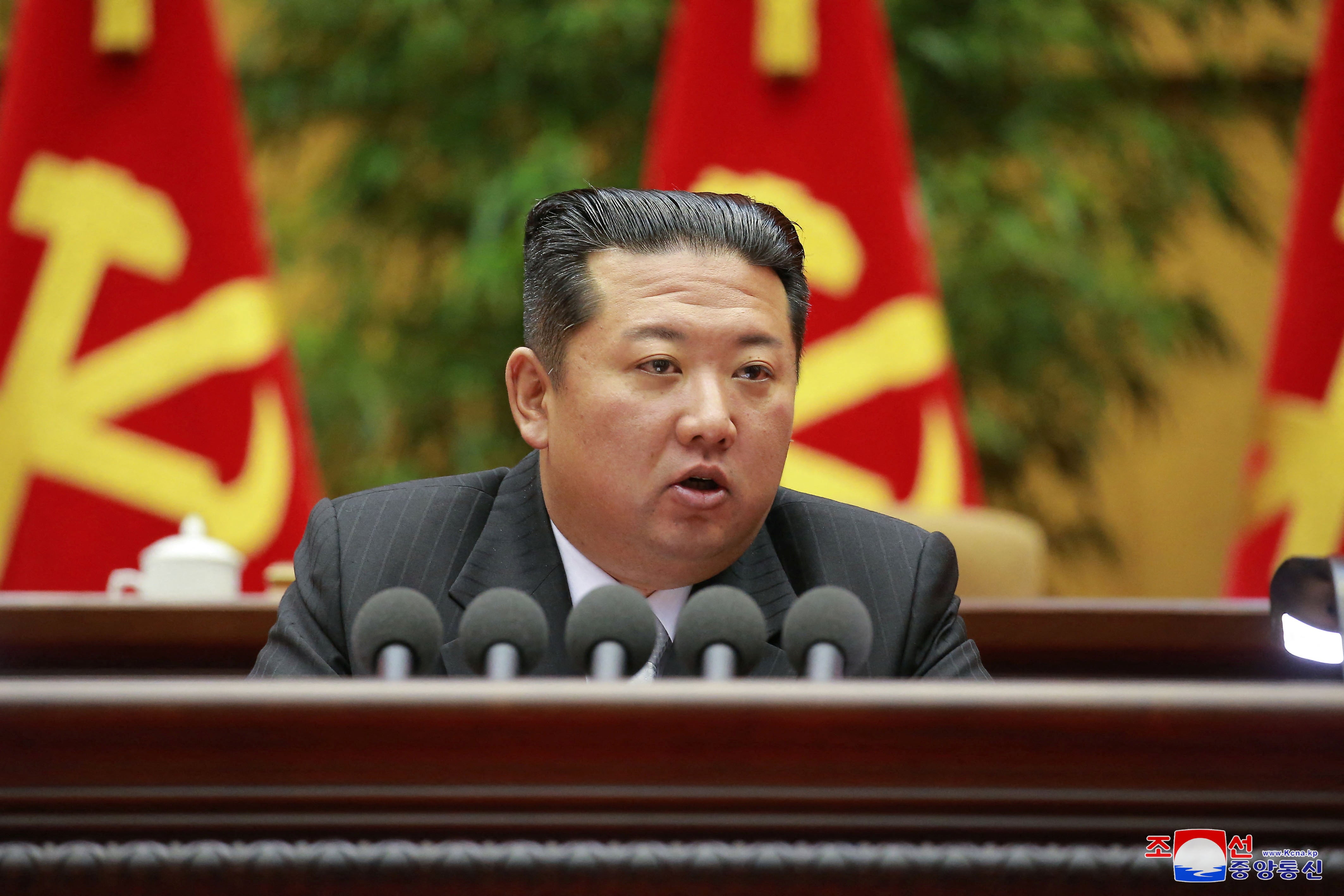North Korea fires suspected ballistic missile into sea
Incident stokes fears Pyongyang may push ahead with missile development while international attention is focused on Russia’s invasion of Ukraine
North Korea fired a suspected ballistic missile in what would be the first test since the nuclear-armed country conducted a record number of launches in January, Japan’s coast guard has said.
Japanese defene minister Nobuo Kishi said the missile flew about 300km at a maximum altitude of about 600km before landing outside Japan’s exclusive economic zone. He added that no aircraft or vessels were damaged.
South Korea also reported that Pyongyang had fired at least one “unidentified projectile” eastward and expressed “deep concerns and grave regret” over it.
The launch came less than two weeks ahead of the 9 March presidential election in South Korea.
The incident has stoked fears that North Korea may push ahead with missile development while international attention is focused on Russia’s invasion of Ukraine.
“If North Korea deliberately carried out the missile launch while the international community is distracted by the Russian invasion of Ukraine, such an act is absolutely unforgivable,” Mr Kishi told reporters. “Whatever the motives are, North Korea’s repeated missile launches are absolutely inexcusable and we cannot overlook considerable missile and nuclear advancement.”
The sentiment was shared in Seoul too.
“Putin’s war shapes almost all geopolitics right now, and should factor somewhere in Kim’s calculus – but even ‘taking advantage of distraction’ seems to presume too much, since (North Korea) was already testing aggressively before the war,” John Delury, a professor at South Korea’s Yonsei University, said on Twitter.
North Korea’s last test was on 30 January when it fired a Hwasong-12 intermediate range ballistic missile, the largest weapon fired since 2017. That capped a record month of mostly short-range missile launches in January.

The US Indo-Pacific Command condemned the launch and urged North Korea to refrain from such acts. It added that the US commitment to the defence of South Korea and Japan “remains ironclad”.
Washington says it is open to talks with North Korea without preconditions, but Pyongyang has so far rejected those overtures as insincere.
North Korea’s ballistic missile launches are banned by United Nations Security Council resolutions, which have imposed sanctions on the country over its missile and nuclear weapons programmes.
Additional reporting by agencies
Join our commenting forum
Join thought-provoking conversations, follow other Independent readers and see their replies
Comments


Bookmark popover
Removed from bookmarks